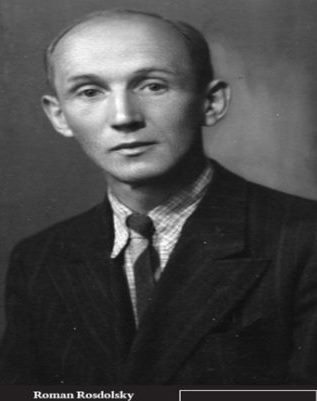In 1948 the Ukrainian Marxist Rosdolsky wrote a devastating critique of the “nationality politics” of the Neue Rheinische Zeitung, the paper that Marx and Engels published and used as the platform for their interventions in the uprisings and struggles that surged around the “bourgeois” revolutions of 1848. Rarely has any Marxist exposed the limitations of any of the concrete political stances taken by Marx and/or Engels with more frankness (less restraint) or more theoretical lucidity. Rosdolsky’s critique focused on the way the paper viewed the aspirations of the Czechs, Croats, Ukrainians and other East European nationalities, starting with the unrestrained racism of (especially) its Vienna correspondent. To Rosdolsky the former (the views espoused by Marx and Engels) mattered more than the latter (the outrageous Slavophobia of this or that correspondent), since it affected the way revolutionary socialists would view struggles for national emancipation.
In one of his worst pieces of writing, “The Magyar Struggle”, published in N.Rh.Z. in January 1849, Engels insisted that in the Habsburg territories only three nationalities could be the bearers of progress—Germans, Poles and Magyars (the Poles were Slavs but a condescending exception was being made)—while the vast majority of Slavic peoples were consigned to the ethnic garbage-heap of history as what Engels thought of as doomed nationalities. Politically, this division (which, Rosdolsky knew, has roots in Hegel) was conceptualised by Engels as a hypostatizing dichotomy between “revolutionary peoples” (that is, nationalities) and “counterrevolutionary peoples”, in a twist of mid-19th century essentialising that is hard to ignore.
Here is some of the language of the article: “The whole of Austria, headed by sixteen million fanaticized Slavs, against four million Magyars”; “an absurd nationality” (an expression also said to cover the Jews of Austria-Hungary); “a similarly decayed nation” (said about the Turks); “Turkish barbarism”; and so on. And more substantively, here is one revealing passage: “There is no country in Europe that does not possess, in some remote corner, at least one remnant-people, left over from an earlier population, forced back and subjugated by the nation which later became the repository of historical development. These remnants of a nation, mercilessly crushed, as Hegel said, by the course of history, this national refuse (Engels’ italics), isalways the fanatical representative of the counter-revolution and remains so until it is completely exterminated or de-nationalized, as its whole existence is in itself a protest against a great historical revolution”. And with an unerring sense of the future, Engels invokes the examples of the “Gaels” in Scotland, the Basques in Spain, and of course the South Slavs (Serbs, Croats, Czechs, etc.) who are brusquely described as “the national refuse (italics) of a thousand years of immensely confused development”.
Rosdolsky demolished all this as a convinced historical materialist. And just as important, his long essay ends with a decisive rejection of hagiography. “There are two ways to look at Marx and Engels: as the creators of a brilliant, but in its deepest essence, thoroughly critical, scientific method; or as church fathers of some sort, the bronzed figures of a monument”.
In the late 1920s, Rosdolsky was expelled from the Ukrainian Communist Party for siding with the Russian Left Opposition. He was arrested by the Gestapo in 1942 but survived internment across three concentration camps. In 1947 he emigrated to the US, but like so many left-wing emigrés of that period (Paul Mattick and Arthur Rosenberg among them), failed to find employment in any of the universities there. Rosdolsky’s most famous work and outstanding contribution to theory is his careful exposition of the ways in which Marx’s notes in the Grundrisse contributed to the emergence of Capital. This was published in German in 1968, a year after he died in Detroit, and translated into English as The Making of Marx’s ‘Capital’.
(The German original of Rosdolsky’s essay “Engels and the “Non-Historic” Peoples: The National Question in the Revolution of 1848” first appeared in Archiv für Sozialgeschichte 1948; the English translation by J.P. Himka was published in a special issue ofCritique: Journal of Socialist Theory, 18–19 (1986).)
by Jairus Banaji

